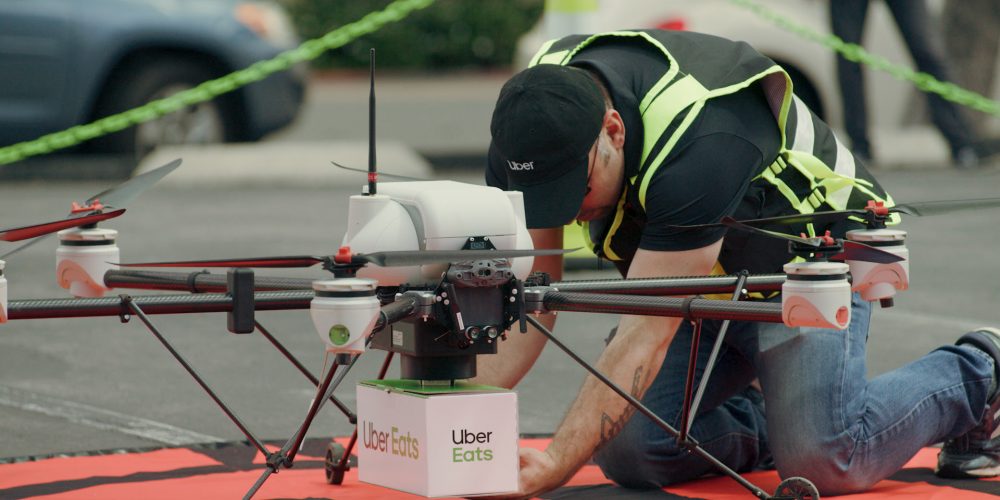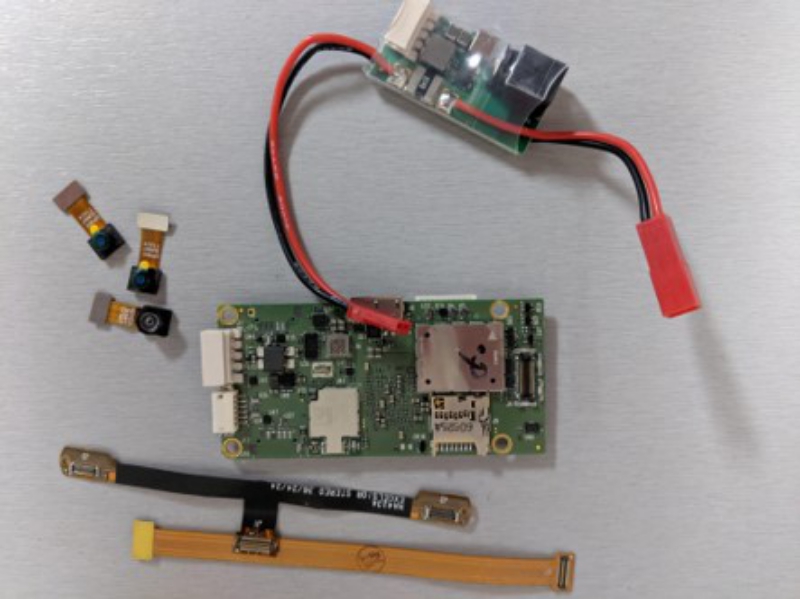Uber Eats Successful Delivery Tests used 4G BVLoS Technology
Uber Eats successfully tested its first food delivery by drone recently, in a high-density urban area with the assistance of technology from San Diego-based startup ModalAI. As the drone carried its edible cargo, VOXL, a powerful yet light-weight computing platform with 4G cellular connectivity, helped keep it safely on the flight path, even when the drone was out of sight from the pilot-in-command.
“The success of the Uber Eats drone delivery helps prove that VOXL is a viable platform for mission-critical drone applications,” said Chad Sweet, CEO of ModalAI. “Moreover, it verified that cellular connectivity is a reliable method of supporting Beyond Visual Line of Site (BVLOS) drone flights.”
VOXL is a computing and communication platform that utilizes the smartphone ecosystem to create a highly-integrated, machine vision-based, autonomous navigation system for indoor, outdoor ground robots and drones. Unlike traditional GPS-based flight systems that can experience weak or lost satellite connections, VOXL keeps drones flying even when GPS is not available.
Affixed to the drone, VOXL used 4G connectivity to communicate between the drone and Uber Elevate Cloud Services, a dynamic, proprietary airspace management system that tracks and guides drone flights to take off, fly and land independently. VOXL provided command and control of the drone and assisted with autonomous navigation of the aircraft and air traffic monitoring via Automatic Dependent Surveillance-Broadcast (ADS-B). It also mapped the progress of the Uber Eats drone so the pilot-in-command could see the drone on a digital map at all times.
“Integrating drones into the national airspace, especially in high-density urban areas, is challenging,” said Dr. Tom Prevot, Director of Uber Elevate. “Tall buildings and flight distance mean operating beyond the range of typical remote control, so the integration of ModalAI has been crucial to our efforts.”
The Uber Eats drone delivery test was part of the Federal Aviation Association’s Unmanned Aerial Systems Integrated Pilot Program (IPP). The City of San Diego is a lead participant in the IPP program and is home to a significant amount of research and development in drone flight in collaboration with 20 regional organizations including the San Diego Regional Economic Development Corporation.
ModalAI joined the IPP program in October 2018 in coordination with Qualcomm Technologies, Inc., the company where ModalAI founders Chad Sweet and Donald Hutson first met.
“Qualcomm Technologies provides the cutting-edge technologies that enable connected machines like drones and robots to be smarter and more autonomous,” said Dev Singh, Director of Business Development and Head of Robotics, Drones & Intelligent Machines business at Qualcomm Technologies, Inc. “With our silicon and ModalAI’s VOXL solution, we are proud to help usher in the era of drone deliveries.”
VOXL is compatible with open-source technologies such as Linux, Robot Operating System (ROS) and PX4, creating a flexible software architecture for a broad number of applications.
Source: Press Release





Ingen kommentarer:
Legg inn en kommentar
Merk: Bare medlemmer av denne bloggen kan legge inn en kommentar.